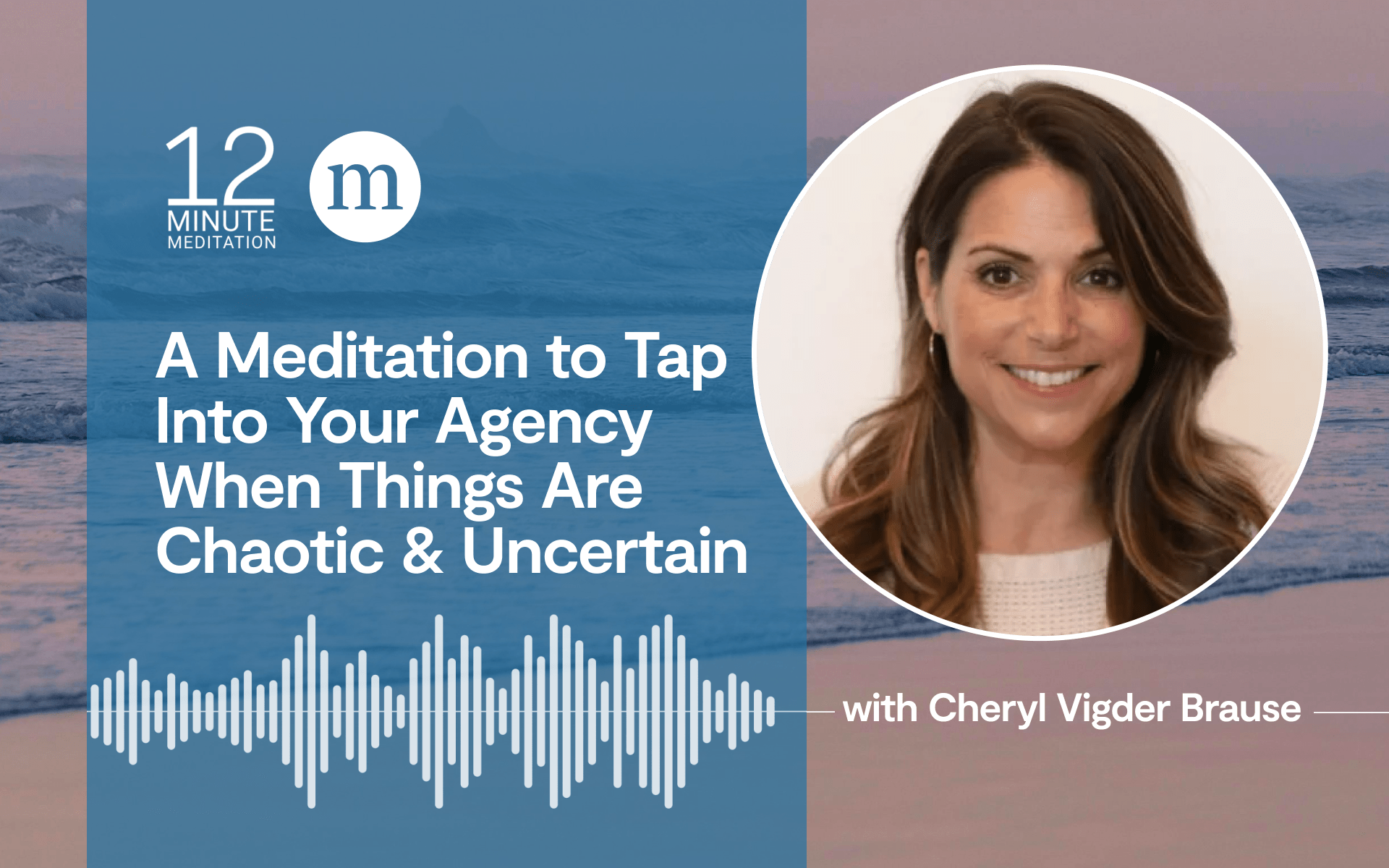Mindfulness
Mindfulness
[ follow ]
#emotional-regulation #meditation #resilience #astrology #presence #aging #patience #identity #relationships
fromwww.berkeleyside.org
7 hours agoBerkeley nonprofit merges Jewish study with artmaking and the creative life
Our mission is about building creative capacity across the Jewish community, but also beyond. Members range from people in their 20s to people in their late 80s, from orthodox Jews to people who are learning Hebrew words for the first time. Some are active in their local synagogues, while others are members of Unitarian Universalist churches or have active meditation practices, and JSP is part of the matrix of spiritual practices for them.
Mindfulness
fromSilicon Canals
1 day agoPsychology says people who still handwrite thank-you notes instead of texting don't just have good manners - they process gratitude at a neurological depth that changes how they experience relationships - Silicon Canals
When we handwrite, especially something as emotionally loaded as a thank-you note, our brains engage in what neuroscientists call "embodied cognition"-the physical act of writing actually shapes how we think and feel about what we're expressing. The people I wrote to started responding differently. Not just polite acknowledgments, but genuine, heartfelt replies that often led to deeper conversations.
Mindfulness
Mindfulness
fromSilicon Canals
1 day agoI asked my 87-year-old neighbor what she would tell her 40-year-old self, and her answer made me pull over and cry on the way home - Silicon Canals
Stop postponing meaningful experiences and dreams for an uncertain future; use your best things and pursue your passions now rather than waiting for perfect circumstances.
fromFortune
2 days agoAt 22, Eileen Gu is already an Olympic multimillionaire success story. She credits it to a brain-training ritual anyone can adopt | Fortune
I spend a lot of time in my head... I journal a lot. I break down all of my thought processes. I apply a very analytical lens to my own thinking, and I modify it. You can control what you think. You can control how you think. And therefore, you can control who you are.
Mindfulness
fromFortune
4 days agoI shared the same guru as William Hurt and Elizabeth Gilbert. Here are 3 things I learned - and now tell CEOs - about toxic leadership | Fortune
When the guru told you to do something, no matter what you thought about it, you did it, because that command was "sacred." Arguing with the guru, it was said, was a fool's response, like kicking gold. Because she was believed to be so evolved, no one dared challenge her authority. And she often expressed anger if they did. This caused many of her followers to cower in her presence.
Mindfulness
Mindfulness
fromSilicon Canals
5 days agoIf you can say yes to at least 6 of these questions, psychology says you've been running on emotional autopilot for longer than you realize - Silicon Canals
Emotional autopilot causes people to go through routine life without emotional engagement, leaving memories factual but emotionally blank and reducing present-moment awareness.
Mindfulness
fromSilicon Canals
5 days agoPeople who can fall asleep within minutes of lying down usually share these 9 strengths - Silicon Canals
People who fall asleep quickly tend to let go of intrusive thoughts, use consistent routines, and demonstrate better stress management, focus, and emotional resilience.
Mindfulness
fromSilicon Canals
6 days ago9 signs you absorb other people's emotions without realizing it and what that reveals about your rare gifts - Silicon Canals
Some people are empaths who unconsciously absorb others' emotions, causing social exhaustion while providing heightened awareness of emotional dynamics.
fromSilicon Canals
6 days agoThe art of selective ignorance: 8 things emotionally intelligent people deliberately tune out - Silicon Canals
Think about it. We live in an age where we can access any piece of information within seconds. Every opinion, every drama, every piece of breaking news is right there at our fingertips. And yet, the people who seem most at peace, most focused, and most successful aren't the ones consuming it all. They're the ones deliberately choosing what to ignore.
Mindfulness
fromwww.mercurynews.com
6 days agoHoroscopes Feb. 21, 2026: Elliot Page, go full tilt in every instance
Happy Birthday: A heartfelt approach to life, love and happiness will help surpass expectations. Go full tilt in every instance that can make a difference to how you feel, affect others and live. The choices you make and the actions you take will influence your financial, physical and emotional well-being. Make decisions that protect your possessions and reputation, and you will save yourself time and money. Put your energy, time and interests first.
Mindfulness
Mindfulness
fromSilicon Canals
6 days ago8 small things people who grew up without much money still do as adults no matter how comfortable they are now-and every single one of them is less about frugality and more about a promise they made to the child who went without - Silicon Canals
Childhood scarcity creates lasting, emotionally charged habits—small rituals of vigilance and preparedness—that persist even after financial stability is achieved.
Mindfulness
fromSilicon Canals
6 days ago8 things people in their 80s wish they had stopped caring about decades ago - most people in their 40s are still obsessing over every one - Silicon Canals
People in their eighties regret wasting energy on others' opinions and wish they'd stopped caring about strangers' judgments sooner.
Mindfulness
fromSilicon Canals
1 week agoThe art of needing less: 8 habits of people who stopped chasing happiness and accidentally found it - Silicon Canals
Happiness grows from needing less and adopting simple habits like accepting "good enough", prioritizing experiences, and releasing the relentless pursuit of perfection.
fromApartment Therapy
1 week agoThis Soothing Italian Philosophy Transforms the Way I Do Everything
"Piano piano" is an old Italian saying that sounds nonsensical, but is actually full of wisdom, especially if you, like me, are finding yourself wishing away these frigid winter days and hoping spring and summer gets here fast. These days, I've found myself rushing from one thing to the next, frustrated at the smallest things, from post office lines to just missing my train. And I'm ready to make a change.
Mindfulness
fromMindful
1 week agoW.A.I.T. a Minute: A Practice to Pause Before You Post on Social Media
A simple mindful practice that can slow down emotional reaction, invite a breath, and encourage you to pause before you post. Social media has made it easy to broadcast our thoughts and feelings far and wide in an instant. At the same time, we often don't even consider the huge numbers of people who will read what we share. How many friends do you have across your socials? 300 to 400? 500 plus? How often do you really pause before you post?
Mindfulness
Mindfulness
fromSilicon Canals
1 week agoPeople who remember small details others mentioned months ago typically have these 7 social talents - Silicon Canals
Remembering small personal details signals deliberate social skills—presence, attentive listening, and practiced habits—that anyone can learn to strengthen connection.
Mindfulness
fromSilicon Canals
1 week ago8 quiet behaviors that reveal someone has done deep inner work even if they never talk about it - Silicon Canals
Deep inner work shows through subtle, consistent behaviors like pausing before responding and holding space without fixing, reflecting emotional discipline and cultivated wisdom.
fromTiny Buddha
1 week agoIt's Okay to Have No Purpose Beyond Being and Enjoying This Moment - Tiny Buddha
The idea that you aren't worthy unless you are producing results has seeped like insidious black mold into every facet of our modern lives. We are pressured to always be making goals, going somewhere, or achieving something. "Doing nothing" is scorned as lazy. Pursuing a hobby with no monetary value or social esteem is deemed a waste of time. You only have a certain number of days on this planet. If you don't spend them hustling, you're of no use to anyone.
Mindfulness
fromYanko Design - Modern Industrial Design News
1 week agoForget Mindfulness Apps, This Desk Top Spins for 2 Minutes Instead - Yanko Design
Amsterdam Dynamics' ST-01 is a modular spinning top and tactile focus object built for desks, hands, and minds that rarely get a break. It's intentionally simple but not single-purpose, offering multiple mechanical interactions with no correct sequence. You use one when you need it or work through all of them. No app, no setup, no instructions, just the object and whatever your hands feel like doing with it.
Mindfulness
Mindfulness
fromSilicon Canals
1 week agoPsychology says people who genuinely prefer staying in on Friday nights display these 8 signs of deep self-awareness - Silicon Canals
Preferring quiet Friday nights often reflects deep self-awareness, including recognition of energy limits and strategic choices for restoration over social performance.
fromSilicon Canals
1 week ago8 micro-behaviors that make someone seem sophisticated without them spending a dime - Silicon Canals
You know that person at the coffee shop who somehow commands the entire room without saying much? Last week, I watched someone transform a chaotic situation at my local café into a moment of calm efficiency. The espresso machine had broken, the line was growing, and tensions were rising. This woman, dressed in simple jeans and a plain white shirt, quietly helped reorganize the queue, offered her spot to someone in a rush, and had everyone feeling better within minutes.
Mindfulness
fromwww.theguardian.com
1 week agoAnalog is back, and my millennial heart couldn't be happier | Tayo Bero
Usually, my handbag is a medley of digital devices and life essentials my phone, iPad, chargers, keys, tampons. But lately, you're likely to also find a half-done newspaper crossword, a ton of stationery, the book I've restarted three times, and whatever scraps and trinkets I've picked up throughout the day to put in my scrapbook. Analog is back, and it feels like we need it more than ever.
Mindfulness
fromBusiness Insider
1 week agoI used to save nice things for special occasions. Now I wear them to the grocery store.
I used to save my favorite clothes for a version of my life that never showed up. The blazer stayed in my closet because it felt "too professional" for a normal day. The heels were waiting for a dinner I'd yet to be invited to. The earrings were longing for an occasion that felt important enough to justify wearing them. Meanwhile, I wore the same outfits on repeat - to work, to run errands, to all the places where my actual life was happening.
Mindfulness
Mindfulness
fromSilicon Canals
1 week agoThe art of being alone without being lonely: 8 daily habits of retirees who are genuinely at peace with solitude - Silicon Canals
Solitude and loneliness are distinct; retirees who enjoy solitude practice intentional morning rituals, lifelong curiosity, and daily habits that make alone time fulfilling.
fromSilicon Canals
1 week agoI thought retirement meant freedom but what I found instead was a mirror, and what was looking back at me was a person I'd been avoiding for forty years - Silicon Canals
The coffee tastes the same at 7 AM on a Tuesday as it does on a Saturday. I learned this my second week of retirement. I was trying to convince myself that there was magic in unstructured mornings-no rush, no agenda, just me and the coffee and some vague sense of possibility. But magic requires you to be present, and I was doing everything I could not to be.
Mindfulness
fromConde Nast Traveler
1 week agoRetreating to a Connecticut Convent With the 'Order of Hospitality'
On Sunday, the first snowfall of December covers the Convent of St. Birgitta in a blanket of pure white. "The world is cloaked in beauty today," Father David Blanchfield says as he begins delivering morning mass to a dozen or so churchgoers bundled up in puffy parkas and thick scarves. Sitting inside feels spiritually counterproductive. Snow, to me, has always felt holy. The purity of it, delivered straight from the heavens. The way it elongates shadows and sparkles in the sun.
Mindfulness
fromThe Nation
1 week agoWalking the Camino in the Shadow of Belief
The particular Camino that I chose to follow-colloquially known as the Camino Frances, or French Way, since it starts at the base of the Pyrenees, the border between France and Spain-is the most famous of all the Caminos. Walking, on average, six to seven hours and 30 kilometers a day, I passed from the south of France into the north of Spain, walking westward through cities that included Pamplona, Logroño, Burgos, and Ponferrada, along with numerous small towns and villages.
Mindfulness
fromPsychology Today
2 weeks agoHow to Find Hope in Challenging Times
We're experiencing chronic stress, which blocks our ability to hope. Here's why: the amygdala, the brain's alarm center, reacts with fight, flight, or freeze (Akil & Nestler, 2023; LeDoux, 1996). This reaction can save our lives in an emergency. When we're in a crosswalk and see a car speeding toward us, we can react by stopping or jumping out of the way.
Mindfulness
fromTiny Buddha
2 weeks agoHow to Stop Feeling Overwhelmed by Other People's Strong Emotions - Tiny Buddha
Some years ago, I was talking to my husband on the phone. He sounded annoyed about something to do with his work, but I noticed an intense emotional reaction in myself. Immediately, my heart contracted and my stomach lurched. I could feel a runaway train of emotions activate within me. My whole body was awash with nausea, and I felt so very uncomfortable.
Mindfulness
fromTiny Buddha
2 weeks agoThe Hidden Cost of Trusting the Universe More Than Yourself - Tiny Buddha
For years, I'd used these journals as a kind of inner courtroom, constantly building a case against myself or others. Every page held evidence of failures, proof of my profoundly advanced ability to gaslight myself. I could shrink or morph into whatever was requested for another person's comfort. Small flowered booklets documenting all the ways I couldn't get "it" right.
Mindfulness
fromBusiness Insider
2 weeks agoI needed to save money, so I challenged myself to a 30-day spending freeze. I learned a lot about my financial habits.
My goal was to only pay bills. I didn't want to buy anything extra, but I knew things always come up, like my son needing something for school. I told myself ahead of time that I could "break the freeze" for absolute necessities only. Over the 30 days, copays for doctor's appointments and prescription costs were the only unexpected purchases I made.
Mindfulness
fromTiny Buddha
2 weeks agoLetting Go of the "Good Person" Identity and Spiritual Expectations - Tiny Buddha
"When I let go of what I am, I become what I might be." ~Lao Tzu For many years, I was deeply involved in spiritual communities-satsangs, meditation centers, ashrams, and groups focused on positivity, service, and personal growth. These places gave me comfort, community, and a sense of purpose. But they also shaped something inside me that I didn't fully recognize until much later: I had built my self-worth around being a "good person."
Mindfulness
[ Load more ]






















